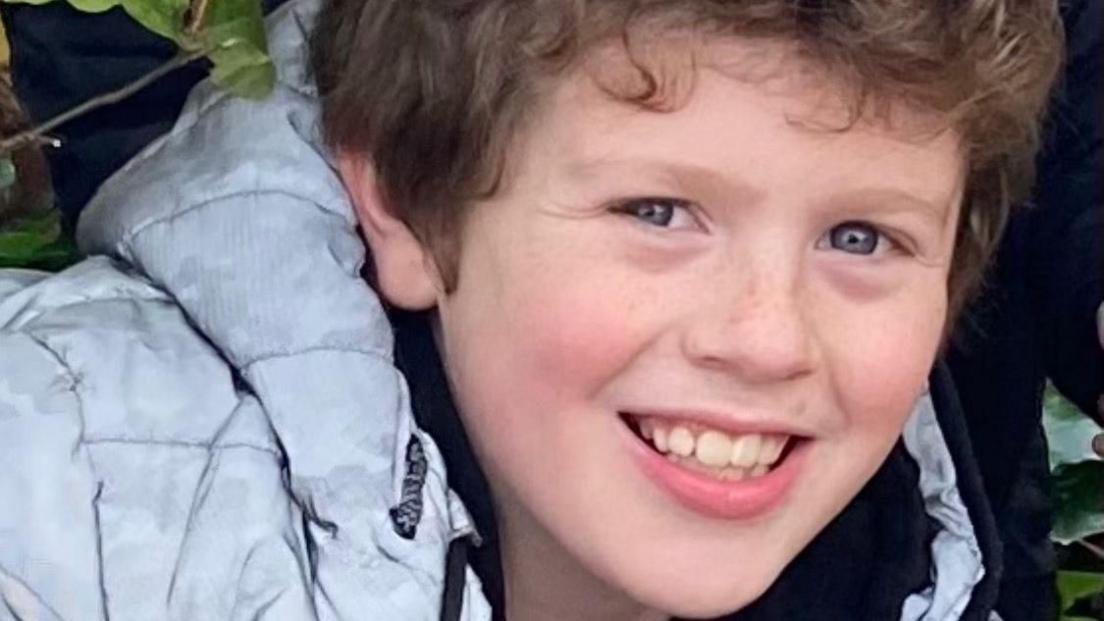Girl, 5, walks to school for help after mum collapses
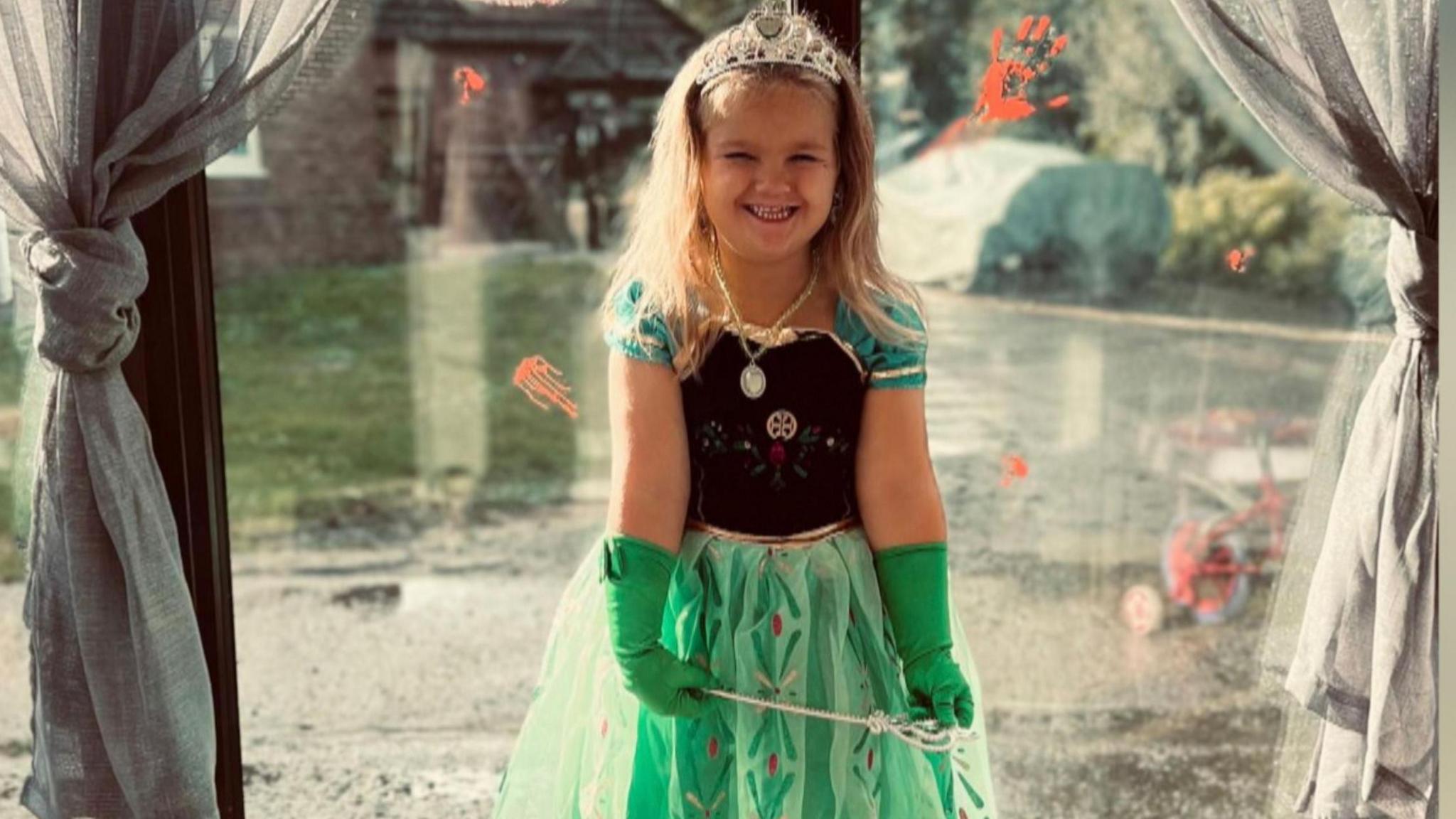
Poppy loves princess dresses and Bluey
- Published
A five-year-old girl sat with her unconscious mother overnight before walking to school in her princess dress and wellies to get help.
Poppy Davies waited all night as her mother, Leisha Davies, lay on the floor of their home in Pontllanfraith near Blackwood, Caerphilly county, suffering from septic shock.
Poppy then walked to school and told her teachers “Mummy is on the floor and I can’t wake her up."
Leisha, who is still recovering from her life-threatening illness, said Poppy was her "little hero".
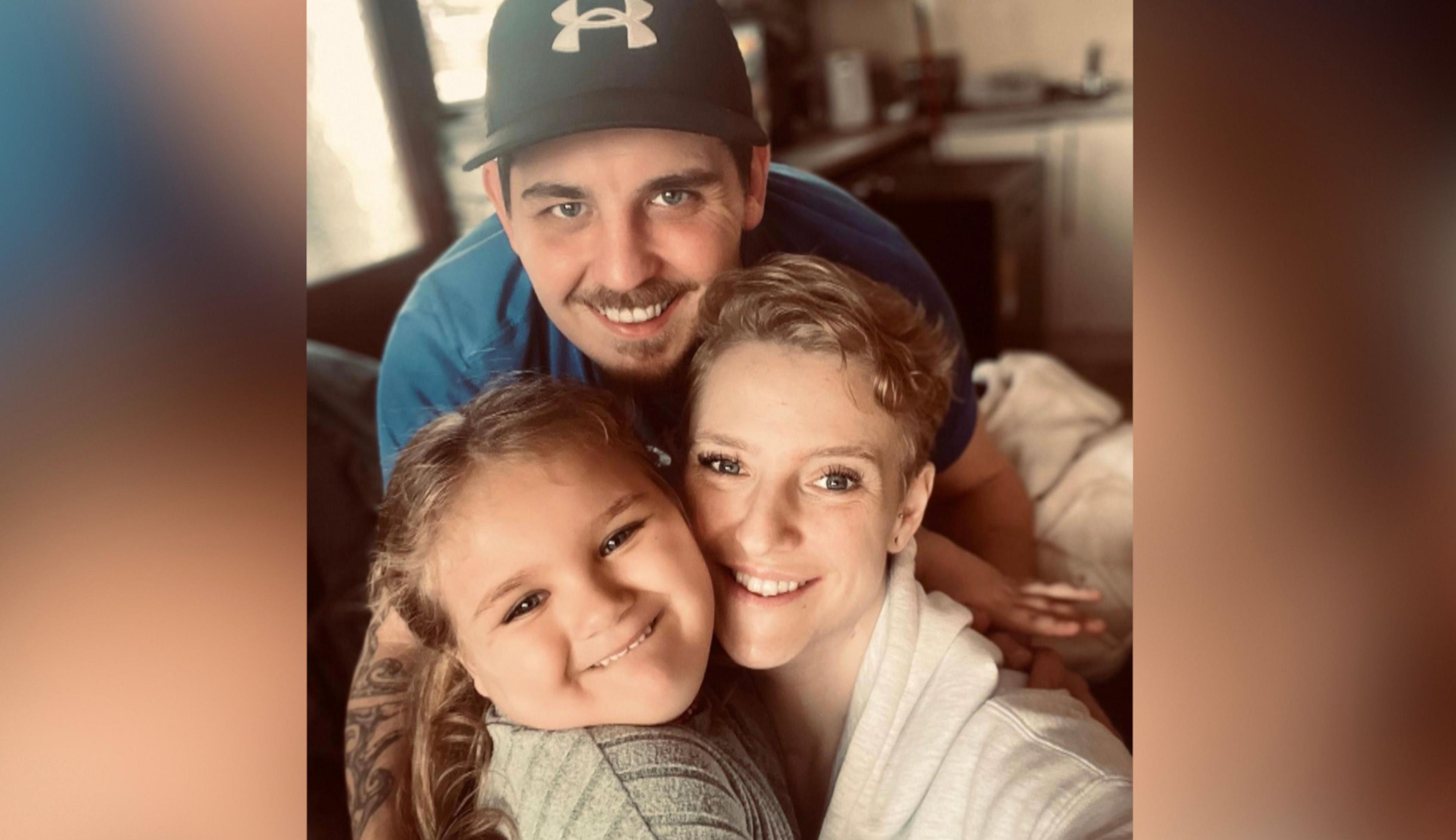
Poppy sat with her mother all night and went for help in the morning
Leisha, 35, a mental health worker, said she had been feeling unwell for weeks after having an operation for a twisted bowel in October 2023.
On the morning of 18 January this year, she woke up feeling extremely tired and later that day, collapsed on the bedroom floor, with her husband Ryan at work.
"Poppy opened all the curtains and blinds in the house and put on all the lights to try and draw attention,” said Leisha.
"But when nobody came, she spent the night with me."
Girl walks to school for help after mum's collapse
The next morning Poppy, still wearing the princess dress she’d been playing in before her mother collapsed, set off to get help, walking to her school, Pontllanfraith Primary, behind her house.
"She put her crown on and her wellies and she went out the house, she went through the school gates and got two of her teachers to come and help."
Those teachers called 999, as well as getting Poppy dressed in her uniform and taking her back to school so she was safe.
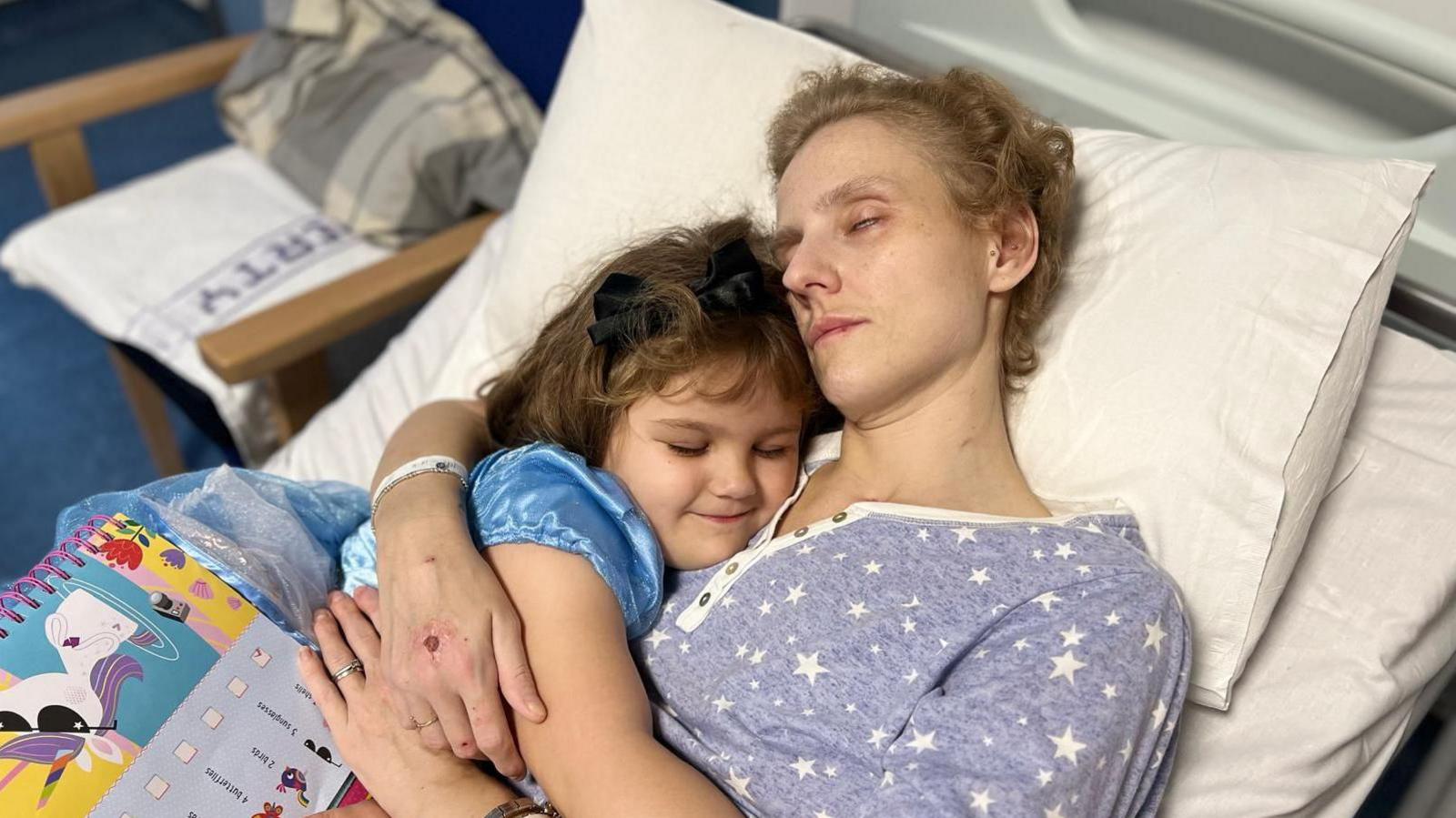
Poppy visited as Leisha spent nine weeks in hospital
The next few weeks would be a blur for Leisha, who was put in an induced coma, fighting for her life.
“I woke up in ITU and I couldn’t remember anything," she said.
"My hands and feet had turned black because of the medication they had to give me. I couldn’t move any of my body and I couldn’t speak because I had a tracheostomy."
Seeing Poppy again was emotional.
"I hadn’t seen her for about a month," said Leisha.
"I just cried and I was trying to say ‘I just can’t believe how big she has got’. I felt like I had missed out on so much.”
"Poppy was the hero - the nurses brought her a little cape."
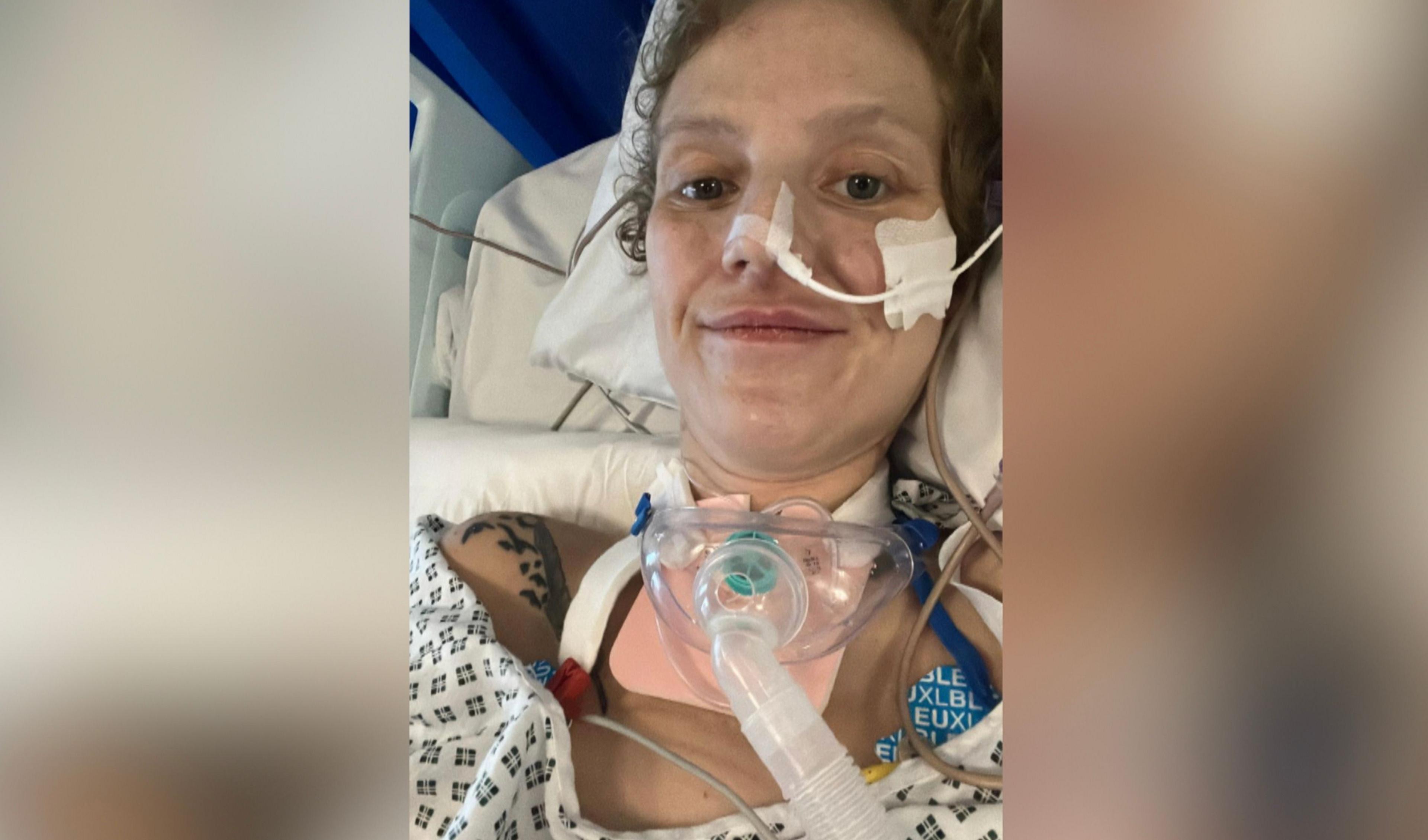
Leisha is facing amputation as a result of her illness
Leisha spent nine weeks in hospital and is still undergoing treatment on her feet.
She was initially told she would have to have her feet amputated from the shin down but doctors now say only half of each foot needs to be removed after turning necrotic.
Now Leisha hopes her story will raise awareness of the symptoms of sepsis, as well as encouraging people to talk to their children about what to do in an emergency
"It is scary," she said.
"I always think what if the inevitable did happen and she didn’t know what to do. She doesn’t understand the gravity but she realises when I say you are my little hero, you saved mummy’s life, and she loves that."
What are the symptoms of sepsis?
Sepsis is a life-threatening condition that develops when the body's immune system overreacts to an infection and starts attacking its own tissues and organs.
If sepsis is not treated early, it can turn into septic shock and cause organs to fail.
Symptoms in adults and older children can include, external:
acting confused, slurred speech or not making sense
blue, grey, pale or blotchy skin, lips or tongue – on brown or black skin, this may be easier to see on the palms of the hands or soles of the feet
a rash that does not fade when you roll a glass over it, the same as meningitis
difficulty breathing, breathlessness or breathing very fast
Symptoms in a baby or young child may include:
blue, grey, pale or blotchy skin, lips or tongue – on brown or black skin, this may be easier to see on the palms of the hands or soles of the feet
a rash that does not fade when you roll a glass over it, the same as meningitis
difficulty breathing, breathlessness or breathing very fast
a weak, high-pitched cry that's not like their normal cry
not responding like they normally do, or not interested in feeding or normal activities
being sleepier than normal or difficult to wake
Source: NHS
- Published25 October 2023
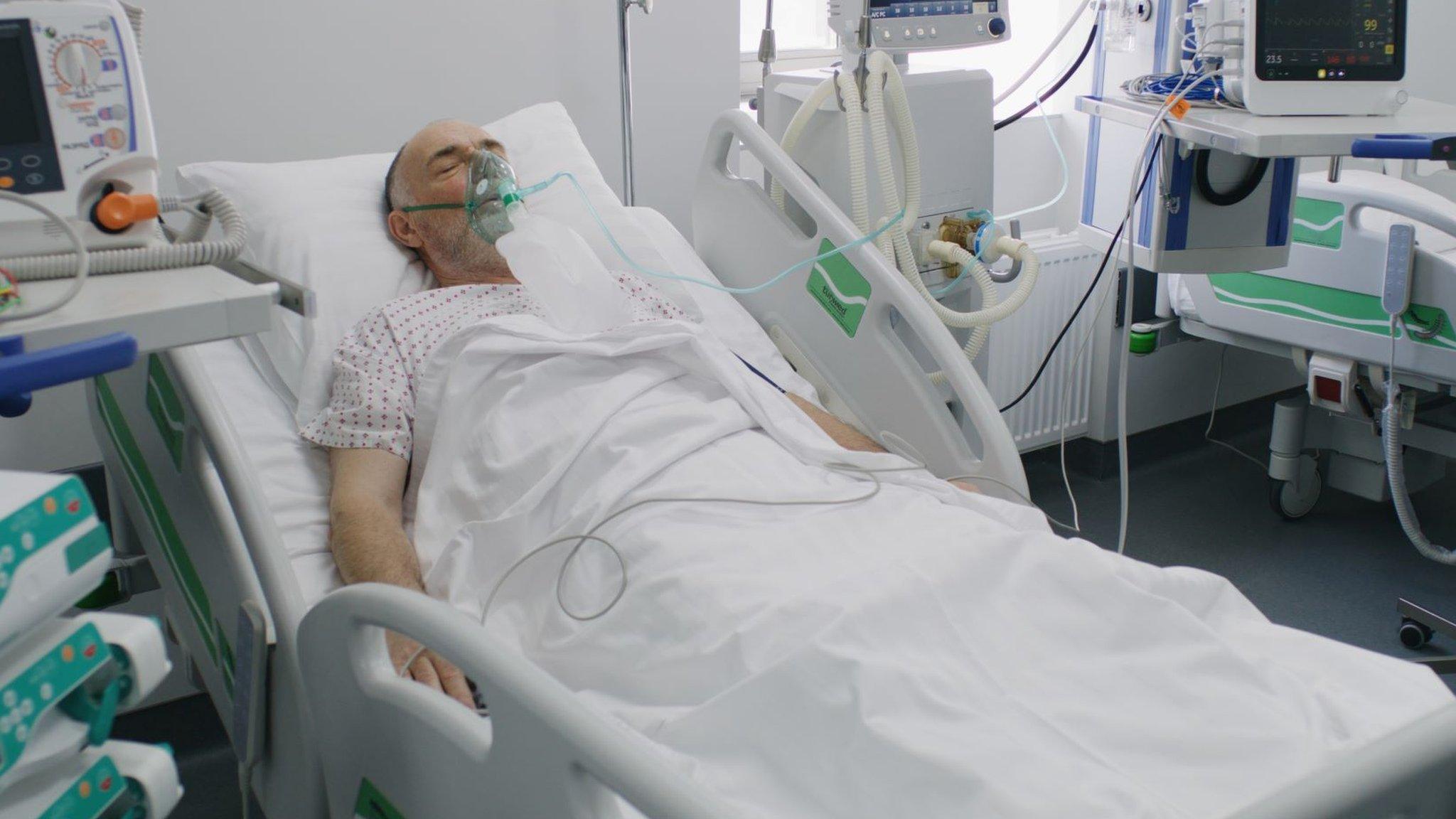
- Published23 May 2024
